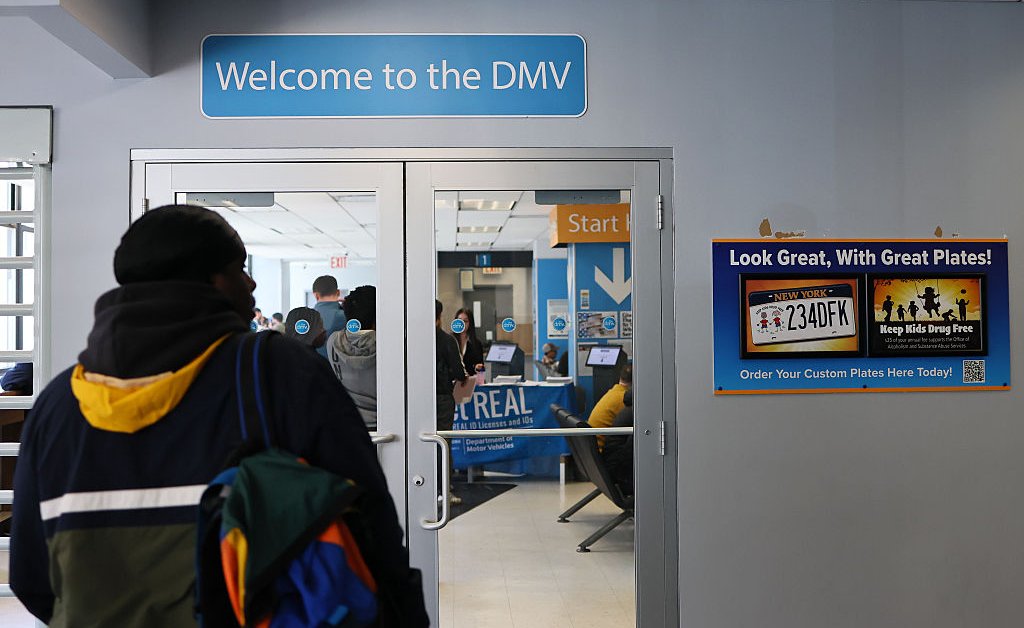Authorities and Department of Motor Vehicles offices (DMVs) officials across multiple U.S. states have released advisories to their citizens to look out for scam texts that are attempting to manipulate drivers into paying a fake “outstanding toll.”
The prevalence of the text scams ramped up throughout May, leading to various states issuing warnings and advice, ultimately telling members of the public to watch out for messages claiming to be from the DMV.
“These scammers flood phones with these texts, hoping to trick unsuspecting New Yorkers into handing over their personal information,” said New York DMV Commissioner Mark J.F. Schroeder in an press release. “DMV will not send you texts asking for your personal information.”
Here’s what you need to know about the DMV scam texts and how you can best protect yourself:
What states have been affected?
The spam texts have spanned across the United States, with Illinois, New York, Virginia, Pennsylvania, Florida, New Jersey, Georgia, Colorado, Vermont, Texas, and California among the states that have issued alerts.
Though their advisories differ, all authority boards have made clear that the DMV does not, and will not, send customers unsolicited requests for payments and personal information.
In Illinois, Secretary of State Alexander Giannoulias issued a stark warning, stating that the Illinois DMV will only send out text messages for appointment reminders.
“Phishing scams are unfortunately an increasingly prevalent threat in our modern society, seeking to cheat Illinoisans out of their personal information and hard-earned money,” Giannoulias said.
In Florida, the state DMV has created a webpage to alert drivers about the scam, reminding locals that the FLDMV “will never contact you via text message demanding payment or threatening suspension or arrest.”
Some local police and civic associations in states like New York and New Jersey have posted warnings across social media, too.
The Warren Township Police Department in New Jersey shared a notice on Facebook on May 31, alerting locals of the “recent increase” in the scam texts.
What are the DMV scam texts saying?
According to screenshot examples placed on government websites, the texts vary state-by-state, but they tend to include a warning that if the recipient does not pay an outstanding traffic ticket, they will encounter a penalty. Recipients are told they could lose their vehicle registration or driving privileges, potentially see a toll booth charge increase, see their credit score impacted, or even risk prosecution.
Some of the websites—the “click here” links—listed in the text messages include terms mirroring “.gov” in an effort to appear legitimate. In New Jersey, many of the scam messages have included links involving variations of “ezpassnj.”
“New Jersey State Department of Motor Vehicles (DMV). Final Notice: Enforcement Penalties Begin on May 30,” one spam text circulating New Jersey stated, according to a screenshot shared in a warning by the City of Linden. The scam message continued: “Our records show that as of today, you still have an outstanding traffic ticket… Please pay immediately before enforcement to avoid license dispensation and further legal disputes.”
What should you do if you receive one of the DMV scam texts?
The Federal Trade Commission (FTC) has a website with consumer advice, which suggests various steps people can take to protect themselves from text message scams. First, those who receive the text can copy the message and forward it to 7726 (SPAM), which could allow your provider to “block similar messages in the future.”
People can also report it to the FTC directly on the government website.
In general, the DMVs of these multiple states advise their citizens to be cautious of all communications they receive, even if those messages come from claimed “trusted sources,” and to never send personal and sensitive information via text or email.
In its public notice, the Warren Township Police Department advised recipients of the text scam to follow four key steps:
- Delete the message immediately
- Do NOT click any links or provide any information
- Report the scam to the Federal Trade Commission at reportfraud.ftc.gov
- If you’re unsure about your DMV status, visit the official DMV website directly or contact them by phone
Generally speaking, scammers are known for creating a sense of urgency, often giving a deadline or listing serious consequences—such as the loss of driving privileges, in this case—in order to prompt a swift response from victims.
David Brumley, a professor of electrical and computer engineering at Carnegie Mellon University, told TIME in 2024 that the best way to protect yourself from scams is to be alert and, if you are unsure if a text is legitimate, call the department or business directly to confirm, before taking any further action.
Murat Kantarcioglu, a professor of computer science at Virginia Tech, told TIME earlier this year that people should also make sure they are informing their older relatives of any prevalent scams, as they may be less tech-savvy and more vulnerable.
“I think everyone should make it their mission to educate the older people in their family about these issues,” said Kantarcioglu, adding that it’s best not to answer text messages from unverified senders or engage in phone conversations with people you don’t know.








